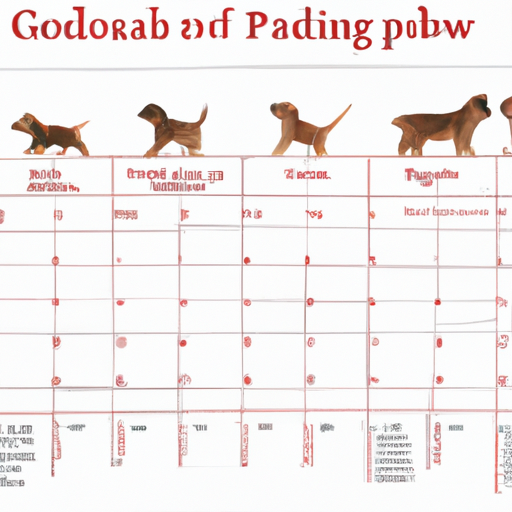Introduction
You love your furry friend, don’t you? And you’ve been witnessing its growth from the time it was a tiny bundle of joy, a little puppy. But as time flies, you might be wondering, when exactly does your dog stop being a puppy? Well, you’re in the right place. This comprehensive guide will answer all your questions and more.
Understanding the Puppy Stage
Being a puppy is not just about age. It’s a combination of physical growth, mental development, and behavioral changes.
- Physical growth: Puppies start off small and grow rapidly, reaching their adult size within a year or two, depending on the breed.
- Mental development: Puppies are like sponges, absorbing information about the world around them. The first few months are crucial for learning and shaping their temperament.
- Behavioral changes: As puppies grow, their behavior changes. They become less dependent and more confident, signaling their transition to adulthood.
The Role of Breed Size
The breed size plays a significant role in determining when your dog stops being a puppy.
- Small breeds: They mature faster and are considered adult around 9 to 12 months.
- Medium breeds: They reach adulthood around 12 to 15 months.
- Large breeds: They take longer to mature, usually between 15 and 24 months.
| Breed Size | Age of Adulthood |
|---|---|
| Small | 9-12 months |
| Medium | 12-15 months |
| Large | 15-24 months |
The Behavior Transition
You’ll notice behavioral changes as your dog transitions from puppyhood to adulthood. They’ll become less hyperactive, more independent, and their destructive tendencies (like chewing everything in sight) will decrease. But remember, these changes are gradual, and patience is key.
Vet Check-ups
Regular vet check-ups are vital during your dog’s transition period. Your vet will monitor your dog’s growth and development and can confirm when they’ve reached adulthood. They’ll also adjust dietary needs and update vaccinations as required.
The Importance of Training
Training should start during the puppy stage and continue into adulthood.
- Puppy training: This includes socialization, house training, and basic commands.
- Adult dog training: This focuses on refining skills and learning advanced commands.
Remember, consistency is key in training. And always use positive reinforcement!
The Emotional Transition for You
As your dog grows, you’ll experience a mix of emotions. You might miss the puppy days, but you’ll also feel proud seeing your dog mature and become more independent. It’s a beautiful journey to witness.
FAQ
When is a dog no longer considered a puppy?
The age at which a dog is no longer considered a puppy varies depending on the breed size. Small breeds become adults around 9 to 12 months, medium breeds around 12 to 15 months, and large breeds between 15 and 24 months.
Do dogs change behavior when they become adults?
Yes, as dogs transition to adulthood, they become less hyperactive and more independent. Their destructive tendencies, like chewing, also decrease.
Why is my adult dog still acting like a puppy?
Some dogs retain puppy-like behaviors into adulthood. This is more common in breeds that take longer to mature. Also, some behaviors might be a result of insufficient training or socialization.
How do I know if my dog has reached adulthood?
Signs your dog has reached adulthood include the cessation of growth, behavioral changes, and confirmation from your vet. Regular vet check-ups are crucial during this transition period.
How does the transition from puppy to adult dog affect their diet?
As your dog matures, their dietary needs will change. Adult dogs require less energy than puppies, so they’ll need less food and different nutrients. Always consult your vet for dietary advice.
In conclusion, the transition from puppy to adult dog is a gradual process that involves physical growth, mental development, and behavioral changes. It’s influenced by breed size and can be monitored through regular vet check-ups. Through it all, your role as a caregiver is to provide consistent training, proper nutrition, and lots of love. Welcome to the beautiful journey of watching your puppy grow into a dog!



